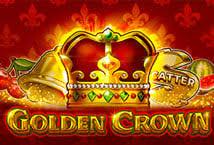Crypto Poker
Crypto poker has taken the online gambling world by storm, merging the classic strategy of poker with the cutting-edge benefits of cryptocurrency. By using digital currencies like Bitcoin, Ethereum, and more, players can enjoy a whole new level of gaming that comes with speed, privacy, and enhanced security.
Why Play Crypto Poker?
- Privacy and Confidentiality: One of the biggest advantages of crypto poker is the anonymity it provides. With cryptocurrency transactions, players don’t have to disclose personal information, giving them a sense of security and privacy that traditional payment methods can’t match.
- Instant Transactions: Traditional banking methods can slow down deposits and withdrawals, but crypto transactions are almost instantaneous. Whether you’re topping up your balance or cashing out your winnings, you can do it swiftly and without delays.
- Global Reach: Cryptocurrencies break down international barriers, meaning players from all corners of the world can easily join crypto poker tables, regardless of their local currency or banking restrictions. You won’t be hindered by geographic limits.
- Fair Play Assurance: Many crypto poker rooms offer “provably fair” technology, allowing players to independently verify that the game is fair and not rigged. This transparency boosts trust and ensures an honest experience.
- Exclusive Crypto Rewards: Several poker sites offer special bonuses or incentives for using cryptocurrencies, which can boost your bankroll and provide additional chances to win.
Popular Crypto Poker Variants:
- Texas Hold’em: The ultimate poker game, where players use a combination of personal and community cards to create the strongest hand.
- Omaha: A twist on Texas Hold’em, where players are dealt four private cards and must make the best five-card hand from their cards and the community cards.
- Seven-Card Stud: A more traditional version of poker where there are no community cards, and each player gets a mix of face-down and face-up cards to form the best possible hand.
Crypto poker rooms bring a refreshing and secure way to play your favorite poker variants, offering a dynamic, fast, and transparent gaming environment. Whether you’re new to cryptocurrencies or a seasoned player, crypto poker is a game changer in the world of online poker. Ready to test your skills? The tables are waiting!
Mega Moolah is known for producing some of the largest progressive jackpot wins in the history of online gambling.
This candy-themed game offers players a unique and rewarding experience with its engaging mechanics, vibrant graphics, and the potential for massive payouts.
Combining immersive visuals, engaging features, and the thrill of big wins, this game is designed to appeal to fans of both Egyptian-themed slots and those seeking rewarding bonus mechanics.
Combining rich visuals, thrilling bonus features, and ample opportunities for big wins, this slot offers a royal gaming experience.
If you’re seeking a slot with an adventurous theme, solid gameplay, and the potential for big payouts, Wolf Gold is certainly worth spinning!
Fortune Snake slot takes players on an enchanting journey through the heart of Asia, blending elements of Eastern mythology and culture with exciting gameplay.
Another hit from NetEnt, where players join Gonzo on a journey to find lost treasure, with cascading reels and free spins.
A highly popular slot from Play’n GO that features an ancient Egypt theme with high rewards for lucky players.
Poker Stratergies
Poker is not just a game of luck; it’s a test of strategy, skill, and psychology. To really excel at poker, you need to go beyond just knowing the rules—understanding key strategies can make all the difference in your performance. Here are some unique and effective strategies to help you step up your game:
1. Smart Hand Selection
- Be Selective and Aggressive: One of the most important things to learn is which hands to play and when. Strong hands like pocket Aces (A-A) or King-King (K-K) are solid choices, while hands like 7-2 offsuit should be avoided unless you’re in a special situation.
- Position is Key: Your position at the table impacts the hands you should play. In early positions, be conservative with your hand selection, but in late positions, you can afford to play a wider range of hands and be more aggressive.
2. Master the Fold
- Know When to Walk Away: It can be hard to fold when you’ve already invested in a pot, but knowing when to let go is crucial. If your hand isn’t improving on the flop, turn, or river, and you’re facing heavy bets, it’s often better to fold early rather than get stuck in a losing hand.
- Don’t Chase Losses: Poker is a long game. If you’re behind and your odds are slim, it’s better to fold than continue chasing a losing hand.
3. Strategic Betting
- Aggression Pays Off: When you have a solid hand, don’t just call—bet or raise to build the pot and put pressure on your opponents. This will make them think twice before continuing with a weaker hand.
- Bluff Smartly: Bluffing is an art. The key to successful bluffing is timing—bluff only when the situation is right. Small, well-placed bluffs can be much more effective than large, obvious ones.
4. Understand Your Opponents
- Observe and Adapt: Every player has a unique style. Some are tight (only play premium hands), while others are loose (play many hands). By recognizing these patterns, you can adjust your strategy accordingly—bluff tight players more and play stronger hands against loose players.
- Vary Your Play: Don’t be predictable. If you always play aggressively or always check, your opponents will figure out your style. Mix things up to keep them guessing.
5. Bluffing and Semi-Bluffing
- The Art of the Bluff: Bluffing is an essential skill in poker, but it requires good timing. Bluffing too often makes you predictable, so use it sparingly and in the right situations. A well-timed bluff can take down a big pot.
- Semi-Bluffing: This strategy involves betting or raising with a hand that may not be the best yet, but has the potential to improve. For instance, if you have a flush or straight draw, betting can often convince opponents to fold, or you might complete your hand and win big.
6. Know Your Pot Odds and Expected Value
- Calculate Pot Odds: Pot odds are the ratio of the current pot size to the cost of a potential call. If the odds of completing your hand (based on the number of outs) are better than the pot odds you’re getting, it’s a good call.
- Focus on Expected Value (EV): Every decision in poker should be made with the long-term value in mind. Even if you lose a hand, if your decision was positive EV, you’re making the right choice over time.
7. Emotional Control
- Avoid “Tilt”: Tilt is when emotions influence your decisions, often leading to rash plays and poor decisions. It’s essential to stay calm and collected, even when things aren’t going your way. If you feel frustrated or upset, take a break.
- Patience Pays Off: Poker is a marathon, not a sprint. It’s crucial to wait for the right moments to act rather than forcing plays. Stay patient and consistent, and you’ll see better results in the long run.
8. Table Positioning
- Early Position: When you’re in early position, you have less information on your opponents’ hands, so it’s best to play only strong hands. These are the hands you want to bet or raise with, like pocket pairs or high cards.
- Late Position: When you’re in late position, you can afford to be more flexible with your hand selection. You’ve seen how your opponents act, which allows you to make better decisions. Play more hands in this position, and use it as an opportunity to steal blinds or make bluffs.
9. Bankroll Management
- Don’t Exceed Your Limits: One of the most important strategies is to play within your bankroll. Don’t risk more money than you’re willing to lose. Set limits for yourself and stick to them, regardless of the temptation to play at higher stakes.
- Bet Sizing and Risk Control: Adjust your bet sizes according to your bankroll. Larger pots require more careful consideration, and it’s best to ensure you can weather any losses before going all-in.
10. Adjusting to Changing Table Dynamics
- Adapting to Opponents: Poker tables can change quickly. If your opponents start playing more aggressively, adjust by playing tighter. Conversely, if they become too passive, you can increase the frequency of your bluffs.
- Tournament Play Adjustments: In tournament settings, you need to adjust as the blinds increase. Early on, you can play more conservatively, but as the tournament progresses, you’ll need to widen your range and take more risks to stay competitive.
By implementing these strategies and learning to read the table, you can significantly improve your poker game. Poker is as much about managing situations and making strategic decisions as it is about the hands you’re dealt. Keep practicing and refining your techniques, and you’ll see your skills—and your wins—grow over time.


















